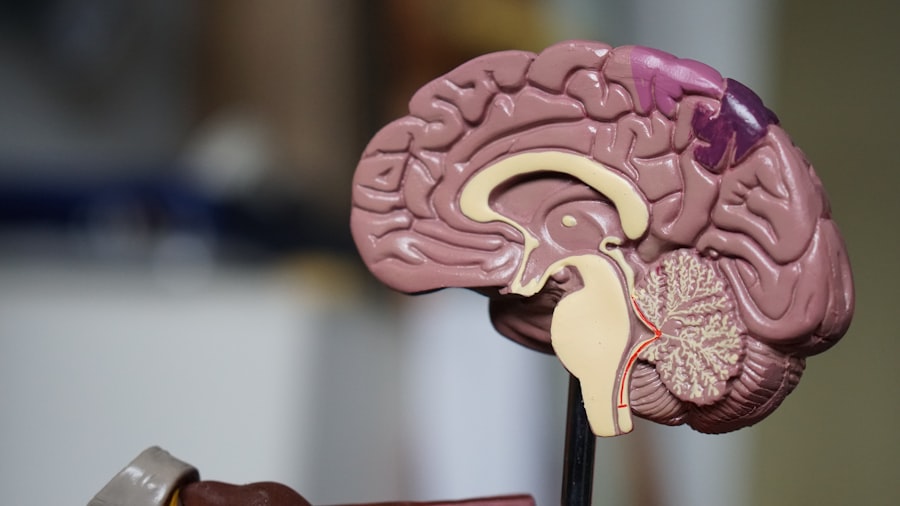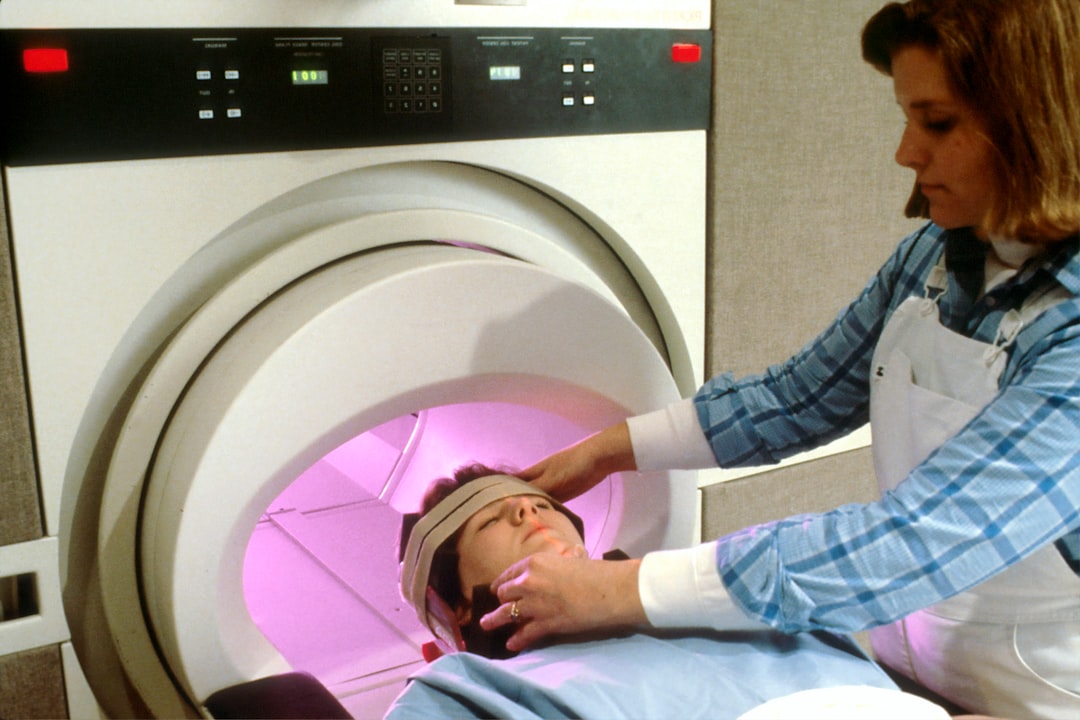ADHD, or Attention Deficit Hyperactivity Disorder, is a neurodevelopmental disorder that affects both children and adults. It is characterized by symptoms such as inattention, hyperactivity, and impulsivity. In children, symptoms of inattention may manifest as difficulty staying focused on tasks, making careless mistakes, and being easily distracted. Hyperactivity symptoms may include fidgeting, talking excessively, and difficulty staying seated. Impulsivity symptoms may present as interrupting others, difficulty waiting for their turn, and acting without thinking about the consequences.
In adults, symptoms of ADHD may look different than in children. Adults with ADHD may struggle with organization, time management, and maintaining relationships. They may also experience restlessness, impulsivity, and difficulty completing tasks. It’s important to note that while these symptoms can be present in individuals without ADHD, those with the disorder experience them to a degree that significantly impacts their daily functioning. Diagnosis of ADHD involves a comprehensive evaluation by a healthcare professional, including a thorough review of the individual’s symptoms, medical history, and any relevant information from family members or teachers. It’s important to rule out other potential causes of the symptoms before a diagnosis of ADHD is made.
Key Takeaways
- ADHD symptoms include inattention, hyperactivity, and impulsivity
- Diagnosis involves a comprehensive evaluation by a healthcare professional
- Treatment options for ADHD include medication, therapy, and lifestyle changes
- ADHD workbooks can be a helpful tool in treatment, providing exercises and strategies
- While ADHD cannot be cured, symptoms can be managed and quality of life improved through various approaches
ADHD Testing: How to Determine if You or Your Child Have ADHD
If you suspect that you or your child may have ADHD, seeking a professional evaluation is the first step in determining a diagnosis. The process typically involves a series of assessments to gather information about the individual’s symptoms and functioning. These assessments may include interviews with the individual and their family members, questionnaires to gather information about the individual’s behavior in different settings (e.g., home, school, work), and possibly psychological testing to assess cognitive functioning and rule out other potential causes of the symptoms.
It’s important to seek out a healthcare professional who has experience in diagnosing and treating ADHD, as they will have the expertise to accurately assess the individual’s symptoms and provide appropriate recommendations for treatment. Keep in mind that the process of testing for ADHD can be time-consuming and may require multiple appointments to gather all the necessary information. However, an accurate diagnosis is crucial for developing an effective treatment plan that addresses the individual’s specific needs.
Exploring Treatment Options: Medication, Therapy, and Lifestyle Changes
Once a diagnosis of ADHD has been made, exploring treatment options is the next step in managing the disorder. Treatment for ADHD typically involves a combination of medication, therapy, and lifestyle changes. Stimulant medications such as methylphenidate (e.g., Ritalin) and amphetamine (e.g., Adderall) are commonly prescribed to help manage symptoms of ADHD. These medications work by increasing the levels of certain neurotransmitters in the brain, which can improve attention and reduce hyperactivity and impulsivity.
In addition to medication, therapy can be an important component of treatment for ADHD. Cognitive-behavioral therapy (CBT) can help individuals develop coping strategies for managing their symptoms and improving their functioning in different areas of their lives. Therapy can also provide support for addressing any co-occurring conditions such as anxiety or depression that may be present alongside ADHD. Lifestyle changes such as implementing structure and routine, getting regular exercise, and practicing stress-reducing activities like mindfulness or yoga can also be beneficial in managing symptoms of ADHD.
The Role of ADHD Workbooks in Treatment
| Workbook Title | Author | Publishing Year | Key Features |
|---|---|---|---|
| Smart but Scattered | Peg Dawson and Richard Guare | 2009 | Practical strategies for improving executive skills |
| The ADHD Workbook for Kids | Lara Honos-Webb | 2006 | Activities and exercises for managing ADHD symptoms |
| The ADHD Workbook for Teens | Lara Honos-Webb | 2011 | Tools for developing self-esteem and managing emotions |
ADHD workbooks can be a valuable tool in the treatment of ADHD, providing practical strategies and exercises for managing symptoms and improving functioning. These workbooks often include information about the nature of ADHD, strategies for improving attention and organization, and tips for managing impulsivity and hyperactivity. They may also include worksheets and activities to help individuals track their symptoms, set goals, and develop personalized strategies for managing their ADHD.
Using an ADHD workbook can be a helpful complement to other forms of treatment such as medication and therapy. It can provide individuals with a structured way to learn about their disorder and develop practical skills for managing their symptoms on a day-to-day basis. Workbooks can also be a useful resource for parents of children with ADHD, providing guidance on how to support their child’s needs and navigate challenges related to the disorder.
Can ADHD be Cured? Managing Symptoms and Improving Quality of Life
While there is no cure for ADHD, it is possible to manage symptoms effectively and improve quality of life with the right treatment approach. Managing ADHD involves a combination of strategies tailored to the individual’s specific needs, including medication, therapy, lifestyle changes, and support from family and healthcare professionals. With the right support and resources, individuals with ADHD can learn to manage their symptoms and thrive in different areas of their lives.
In addition to traditional treatment approaches, there are also alternative therapies that may be beneficial for managing symptoms of ADHD. Mindfulness practices such as meditation and deep breathing exercises can help individuals improve their focus and reduce stress. Regular exercise has been shown to have positive effects on attention and mood in individuals with ADHD. Dietary changes such as reducing sugar intake and increasing consumption of omega-3 fatty acids may also have a positive impact on symptoms.
Alternative Therapies for ADHD: Mindfulness, Exercise, and Dietary Changes

In addition to traditional treatment approaches such as medication and therapy, alternative therapies can also play a role in managing symptoms of ADHD. Mindfulness practices such as meditation and deep breathing exercises can help individuals with ADHD improve their ability to focus and regulate their emotions. By practicing mindfulness regularly, individuals can develop greater awareness of their thoughts and feelings, which can help them manage impulsivity and improve attention.
Regular exercise has also been shown to have positive effects on symptoms of ADHD. Physical activity can help individuals with ADHD release excess energy in a constructive way, improve their ability to focus, and reduce feelings of restlessness. Engaging in activities such as yoga or martial arts can also provide opportunities for individuals to practice self-control and discipline, which can be beneficial for managing symptoms of hyperactivity and impulsivity.
Dietary changes may also play a role in managing symptoms of ADHD. Some research suggests that reducing sugar intake and increasing consumption of omega-3 fatty acids found in foods like fish, flaxseeds, and walnuts may have a positive impact on attention and behavior in individuals with ADHD. While dietary changes alone are unlikely to fully address symptoms of ADHD, they can be a helpful complement to other treatment approaches.
The Importance of a Multidisciplinary Approach to ADHD Treatment
Given the complex nature of ADHD and its impact on different areas of an individual’s life, a multidisciplinary approach to treatment is crucial for addressing the diverse needs of those with the disorder. A multidisciplinary team may include healthcare professionals such as psychiatrists, psychologists, pediatricians, occupational therapists, and educators who can collaborate to provide comprehensive care for individuals with ADHD.
A multidisciplinary approach allows for a more holistic understanding of an individual’s needs and challenges related to ADHD. It also provides opportunities for different professionals to contribute their expertise in developing tailored treatment plans that address the individual’s specific needs in different areas of their life. For example, educators can provide support for implementing accommodations in school settings, while occupational therapists can help individuals develop strategies for managing their symptoms in daily activities.
In conclusion, understanding the symptoms and diagnosis of ADHD is crucial for identifying the disorder in both children and adults. Testing for ADHD involves a comprehensive evaluation by a healthcare professional to gather information about the individual’s symptoms and functioning. Exploring treatment options for ADHD involves considering medication, therapy, lifestyle changes, and the use of ADHD workbooks as valuable tools in managing symptoms. While there is no cure for ADHD, it is possible to manage symptoms effectively through a combination of traditional treatment approaches and alternative therapies. A multidisciplinary approach to treatment is essential for addressing the diverse needs of individuals with ADHD and providing comprehensive care that supports their overall well-being.
If you’re interested in learning more about ADHD and its treatment options, you may want to check out this article on ADHD testing and diagnosis from ADHD Testing. This article provides valuable information on the process of diagnosing ADHD and the various testing methods available. It’s a great resource for anyone looking to better understand the condition and how it can be effectively managed.
FAQs
What is ADHD?
ADHD stands for Attention Deficit Hyperactivity Disorder, which is a neurodevelopmental disorder that affects both children and adults. It is characterized by symptoms such as inattention, hyperactivity, and impulsivity.
Can ADHD be cured?
There is currently no cure for ADHD. However, it can be effectively managed with a combination of medication, therapy, and lifestyle changes.
What are the treatment options for ADHD?
Treatment options for ADHD may include medication, such as stimulants or non-stimulants, behavioral therapy, and educational support. It is important for individuals with ADHD to work with healthcare professionals to develop a personalized treatment plan.
Can ADHD symptoms improve over time?
While ADHD is a lifelong condition, symptoms can improve over time, especially with proper treatment and support. Many individuals with ADHD learn to manage their symptoms and lead successful and fulfilling lives.
Is ADHD a result of bad parenting or lack of discipline?
No, ADHD is not caused by bad parenting or lack of discipline. It is a complex neurodevelopmental disorder with genetic and environmental factors playing a role in its development. It is important to approach ADHD with understanding and support rather than blame.














